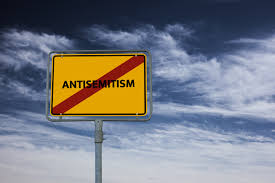Responding to antisemitism
 On a daily basis, I receive an e-mail message from the Secure Community Network (SCN), the official safety and security organization of the Jewish community in North America. SCN has provided invaluable training and information to Jewish communities like ours, helping to identity potential dangers, and coordinating with local and national law enforcement agencies to track and counter antisemitic threats.
On a daily basis, I receive an e-mail message from the Secure Community Network (SCN), the official safety and security organization of the Jewish community in North America. SCN has provided invaluable training and information to Jewish communities like ours, helping to identity potential dangers, and coordinating with local and national law enforcement agencies to track and counter antisemitic threats.
A sampling of headlines from today’s SCN digest (12-7-22) reflects what we already know; antisemitic incidents and threats around the world have grown alarmingly over the past few years:
125% Increase In NYC Antisemitic Hate Crimes In November- NYPD[Source: Jerusalem Post]
Doug Emhoff To Chair White House Roundtable With Jewish Groups On Rising Antisemitism[Source: Jewish Telegraphic Agency]
Suspect Charged With Hate Crime In BB Gun Shooting Of Father, 7-Year-Old Son Outside Kosher Market [on Staten Island][Source: ABC 7 NY]
German Jewish Leader Possibly Targeted In Iranian Spy Operation, Officials Reveal[Source: Jewish Telegraphic Agency]
Rabbi Hara Person notes, “Antisemitism isn’t a new trend. As U.S. special envoy to monitor and combat antisemitism, Dr. Deborah Lipstadt, often says, antisemitism is one of the oldest hatreds, and blaming Jews for the world’s ills has become a staple in extremist rhetoric.”
In a recent meeting of our congregation’s Social Justice Committee, we discussed this challenging question: “How should we, as a congregation, be responding to this growing threat?” It was a thought-provoking conversation, one that helped underscore the fact that there is no single strategy to reverse, much less eliminate, antisemitism. Here are some of the salient observations and suggestions that emerged from that conversation:
- Antisemitism is not a “Jewish problem”; it a problem caused and perpetuated by those who hate Jews and/or Judaism.
- Antisemitism occupies a place on the spectrum of hatreds directed at minority communities and which is manifest in racism, xenophobia, homophobia, Islamophobia, transphobia, etc.
- We have an obligation to speak out when antisemitism is manifest in whatever ways are available to us (social media, letters to the press, etc.)
- We have a right to expect that faith community leaders as well as our elected officials will respond and condemn antisemitic acts.
- We must build and join the efforts of coalitions that work to counter hate in all of its manifestations. Supporting organizations such as the ADL (Anti-Defamation League) and the SPLC (Southern Poverty Law Center) NPFH-Falmouth (No Place For Hate), etc.
- Maintaining the safety and well-being of our community is paramount, especially in view of the fact that it is impossible to anticipate all potential threats to our safety and well-being. To this end, our congregation’s leadership has gone to great lengths to “harden” FJC’s facilities and to implement important safety protocols.
- Acknowledging the outsized role that social media (i.e. Twitter, Facebook, TikTok) plays in disseminating antisemitism and the industry’s failure to effectively police hate content, it may prove helpful to communicate to advertisers on those platforms the unacceptability of such financial support.
We understand all too well that Jews, for millennia, have had to contend with antisemitism in forms that range from merely annoying to lethal. We stand in that continuum, unable to predict the future but able and obligated to take every possible precaution in the face of growing antisemitism.
Our Social Justice Committee will continue to explore ways in which we can respond as a community and will welcome your views and recommendations.
Stay safe, stay informed, and stay committed not only to the safety of our community, but to the joys and rewards of Jewish living that remain undimmed.
Reb Elias


